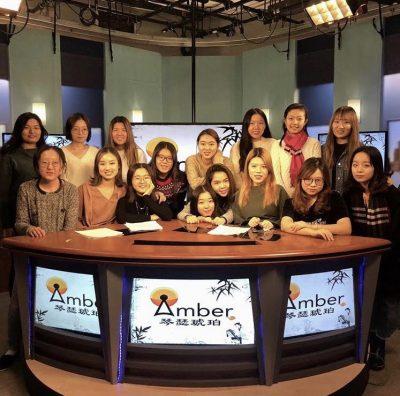In recent years, the Academy Awards have come under attack for their lack of recognition of female directors and has faced criticism for hindering women’s ability to make a name for themselves in a male-dominated industry.

At Boston University, female alumni, professors and students look to the directing industry with hope and determination despite the challenges of the past, said Garland Waller, director of the Television Graduate Program and assistant professor in the College of Communication.
“There is a strength in these young women that is relatively new, where they know they can compete,” Waller said. “It doesn’t change how hard the business is, but there’s a refreshing and impressive stamina that I’m seeing in young women. And I really believe in them, I really believe they are going to be the game changers.”
Waller said she has dealt with sexism personally. Though she has received national awards for her work in directing, producing and writing Waller, previously Jane Garland Waller, said she made sacrifices to be treated equally as her male counterparts.
“Because of the bias and the sexism in the film and television industry, I decided to drop my first name of Jane and only go by Garland Waller, so that people didn’t know whether I was a man or a woman,” Waller said. “I got far more jobs when I dropped the female Jane and stuck with the more gender amorphous name of Garland.”
But, Waller said she has seen a slight change in the students she has taught over 20 years and that she has seen the gender divide in her class shift from being predominantly male to predominantly female over the years.
“I think it’s better for the women because there are more of them who are assertive and strong and clear-headed,” Waller said. “But I also think it’s a tough, tough business, and there’s still sexism and there’s still sexual harassment and there’s still a lot of stuff they have to deal with.”
Emily Sheehan, who graduated COM with a master’s in Cinema and Media Production in 2016 and has worked as a director and executive producer’s assistant on HBO’s “Watchmen,” said she has seen a positive shift in the television industry in regards to equality.
“It’s this weird thing where, right now, people are aware. They know that the status quo needs to change,” Sheehan said. “For the first time in my life, and also for the first time, I think, in the industry’s life, they are looking for people like me.”
While a student at BU, Sheehan took advantage of the resources and classes COM offered, she said, including having her own BUTV10 show in her attempt to be heard.
“I did everything that I could at BU to try to separate myself from the pack and to make myself into the best filmmaker I could at that level,” Sheehan said. “But I was always worried. I am still worried and deeply concerned that my voice won’t be heard, and that people won’t pay attention to me.”
Qianyi Song, a sophomore in COM studying Film and Television, said she thinks BU empowers females to demand and expect equality.
“Every film class that I am in, I think there is a very on-point ratio between guys and girls and we all get the same opportunities,” Song said. “Because we practice this way at BU, once we go to the actual field, we as females, we don’t feel like we’re less than any males and we’re empowered somehow because of our education right now.”
Despite the continued challenges and progress in the industry, Waller said she would advise any aspiring female director to have confidence in their abilities.
“I would like to see all women stop using ‘I’m sorry,’” Waller said. “Develop some confidence in yourself, where you don’t need confirmation or affirmation from anybody else, that you work on self respect and self appreciation.”
Sheehan said she would tell any aspiring female director to persevere, no matter how slow the progress seems, because their perspective and contribution have value.
“Every person has a story,” Sheehan said. “Especially women have stories that have value and a very unique perspective, and that voice and that perspective is something that the world needs to hear.”


























































































































